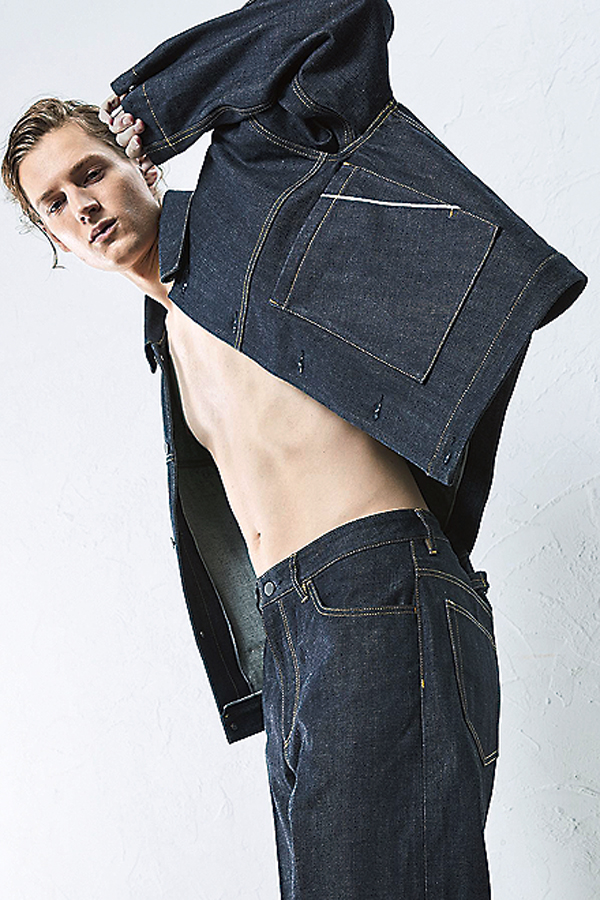Onomichi, Hiroshima-based Accès, which operates the Parigot boutique store, has become a flagbearer for its region, expanding its business with the Japan Denim brand, which it launched last spring in partnership with local producers. It is now on track for global expansion, having increased the number of businesses and brands on board this year and exhibiting the denim at Milano Unica in spring and the products at Tranoi. The increased sales enjoyed by Parigot are based on the cooperative system of production workshops and designers. It aims to sell 5,000 pairs of jeans over the 2020 season.
Japan Denim is part of the Bichu-Bingo Japan Denim Project to promote Japanese denim bringing together government and business. The region centred on Fukuyama City, Hiroshima Prefecture and Ibara City, Okayama Prefecture is home to 80% of domestic denim production. From spinning to dyeing and processing, the project has unified all aspects of denim production, yet due to the lack of “brand”, it was little known among the wider public.
To tackle the issue, Accès, which is headquartered near the region, teamed up with producers and designers to create a brand (domestic trademark registered). In FY2019, 18 producers and 12 brands doing business with Accès took part. Collections are launched annually. Last spring, the pop-up shop at Ginza Six made almost triple its expected sales. Total sales in 2019 were 2,520 pairs.
In FY2020, the number of participating producers has increased to 27 including Kaihara Denim, Sakamoto Denim, Shinohara Textile, Oe Hifuku, Sanyo Senko and Howa. Environmentally sustainable production is front and centre in manufacturing. There is a long menu of initiatives, from the adoption of eco-dyeing technologies to reduction in water use and elimination of toxic wastewater emissions, installation of energy-saving boiler systems and the reuse of sludge as compost.
The 16 partner brands include Cinoh, Attachment, Coohem, muller of yoshiokubo, Denham and Muveil. Where women previously accounted for 80% of the market, a growing pool of customers means that men now account for 37% of sales. There has also been a deliberate move to increase the ranks of brands that are already active overseas such as Attachment. Beyond jeans, items like dresses, skirts and shirts are planned.

In addition to exhibits at Milano Unica and Tranoi, a pop-up is also opening at Tenoha Milano, a shopping mall in Milan from February 4th. Pop-up shops are also planned for department stores across Japan this spring. The dedicated website is scheduled to relaunch in early February. The website will have both Japanese and English versions, and will highlight the factories involved in production. Tags will include the name of the producer of each garment, which is also expected to lead to increased business opportunities.
Accès executive Michio Takagaki says of the rapid expansion of the business despite launching only in spring last year, “The cooperation of producers who have stepped up to deliver our sudden orders and small lots has been a huge boost. The fact that we started off with a hot item also helped.” Another contributor to the strong uptake of the denim brands has been the slightly cheaper pricing of the cooperative products.




